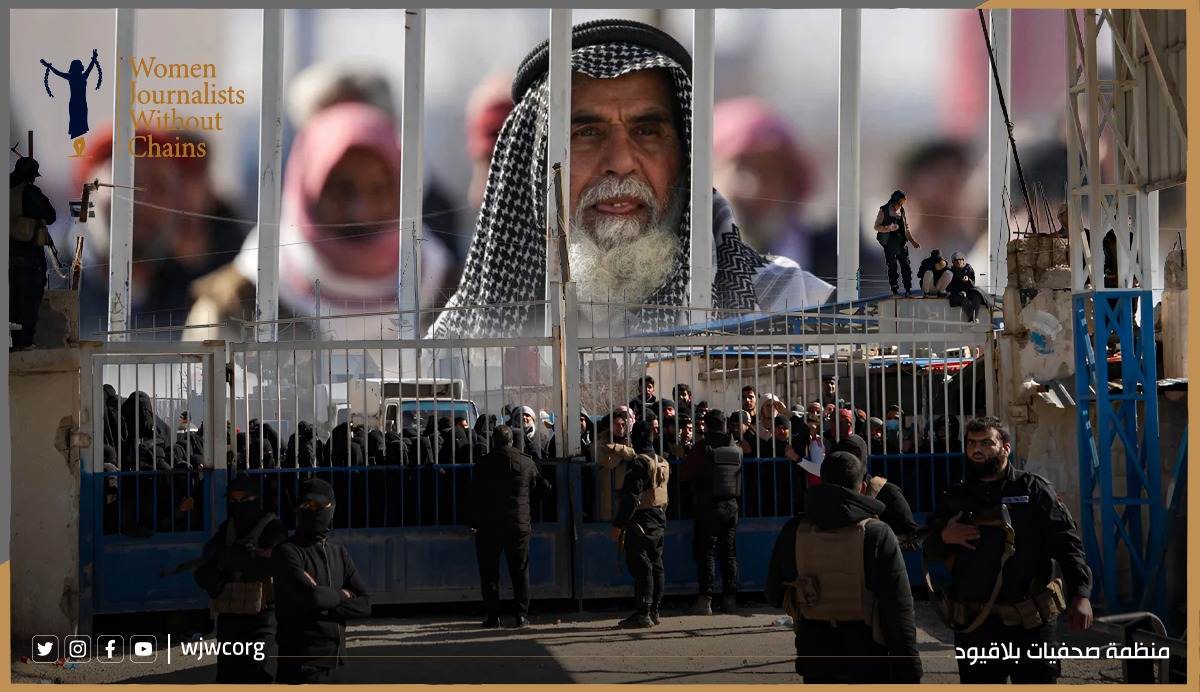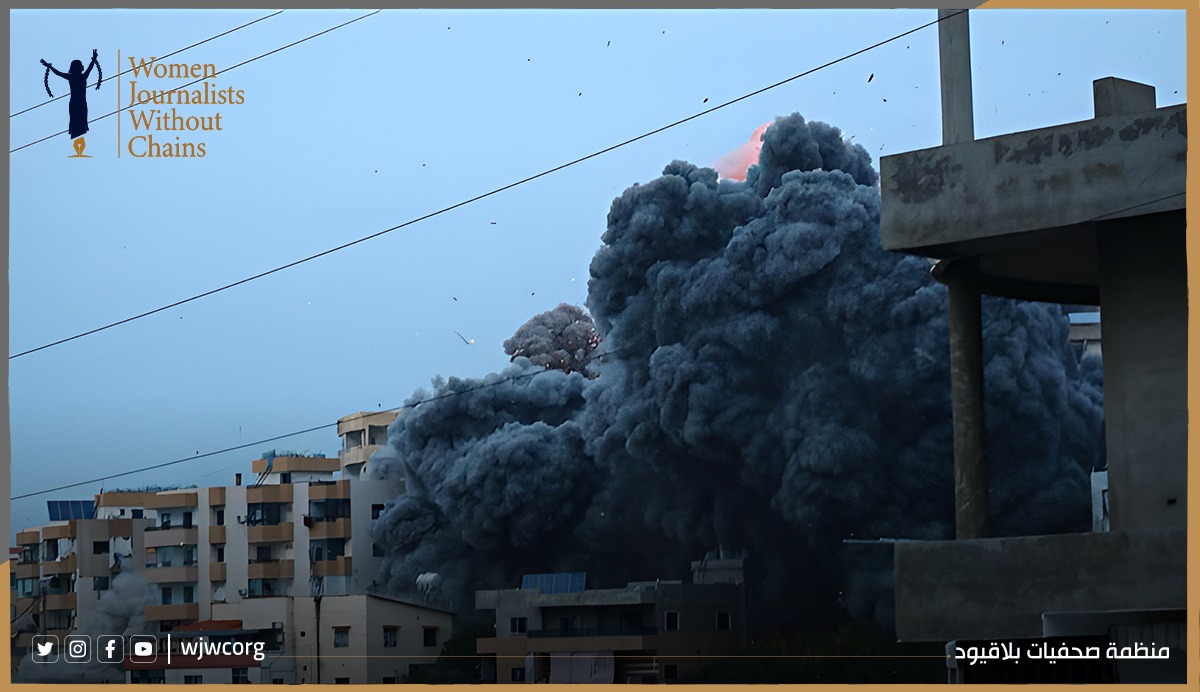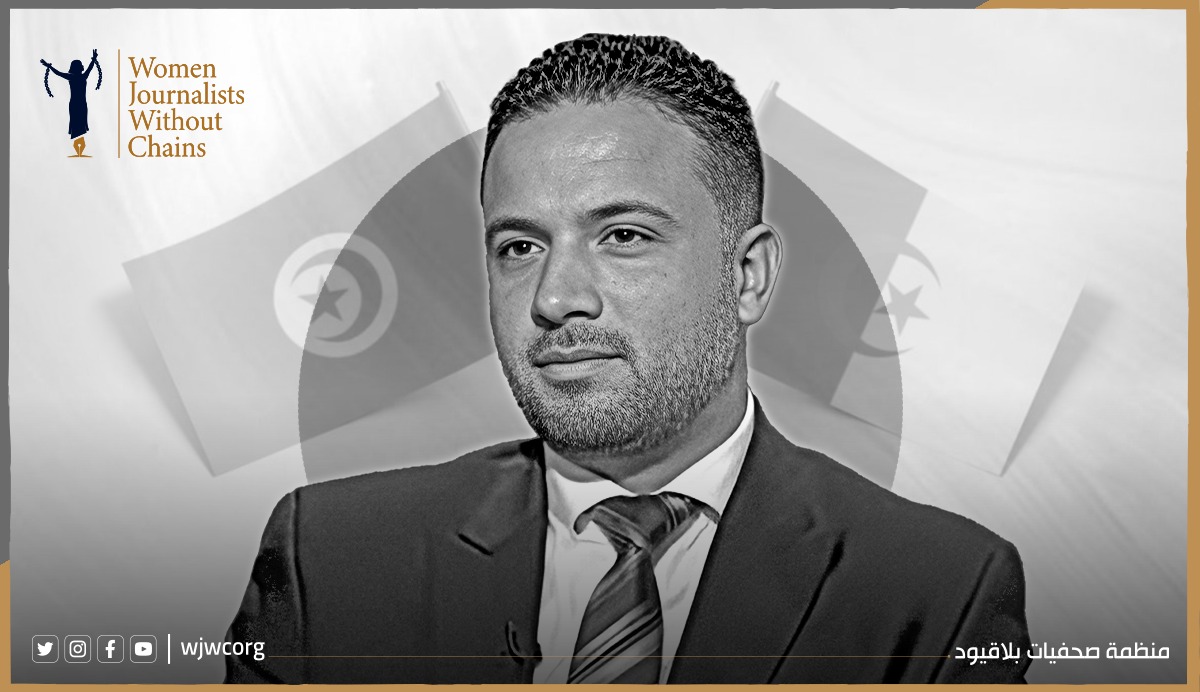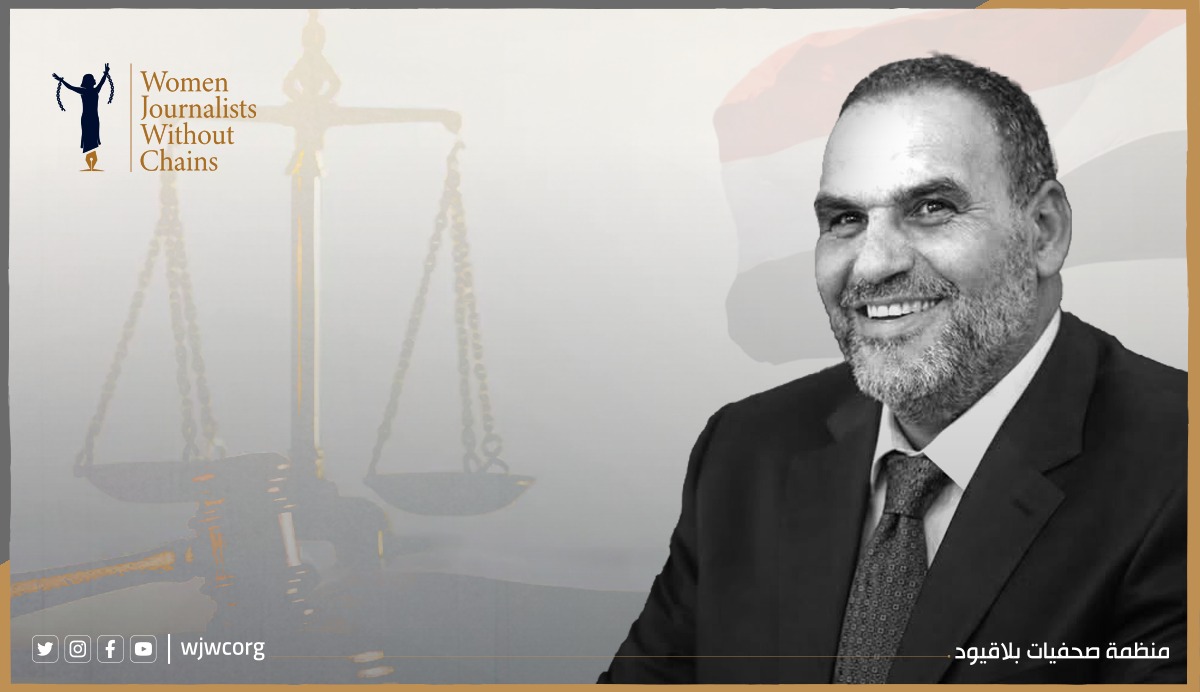WJWC Exposes Systematic Torture and Yemen’s Failing Justice System
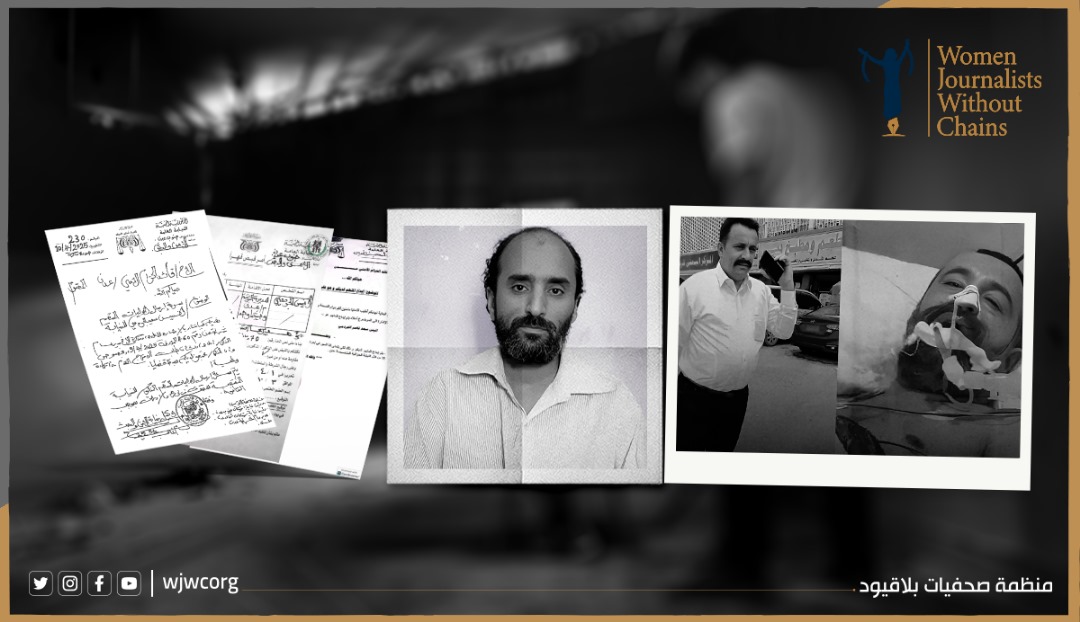
The deaths of activist Anis Al-Jardami in Aden and citizen Musaed Al-Dhahyani in Sana’a have drawn fresh attention to a dangerous surge in abuses by both Southern Transitional Council and Houthi forces.
Documented by Women Journalists Without Chains (WJWC), these cases reveal a deepening pattern of torture, secret detention, and lawless arrests that is unraveling Yemen’s already fragile justice system and putting journalists, activists, and civilians at growing risk.
WJWC warns that these deaths are not isolated incidents but clear evidence of systematic abuse and unchecked impunity across Yemen. The ongoing crisis of torture and arbitrary detention demands urgent international attention, as repression threatens civil society, women’s rights, and freedom of expression in both STC- and Houthi-controlled areas.
Judicial Collapse and Arbitrary Detention: The Case of Anis Al-Jardami
Anis Al-Jardami’s story stands as a chilling testament to the dangers faced by political opponents in southern Yemen. As the leader of the Union of South Arabia, a political movement championing southern independence, Al-Jardami was known for his outspoken criticism of the STC and its affiliated armed groups. His activism—and the state’s response to it—lay bare the mechanisms by which dissent is suppressed and legal norms are bypassed in today’s Yemen.
On April 1, 2025, Al-Jardami was arrested by Security Belt Forces, a paramilitary group aligned with the STC. This arrest was not the result of a judicial investigation or lawful warrant, but rather a verbal directive issued by Aidarous Al-Zubaidi, head of the STC. The charges levied—incitement to murder, sedition, and disobedience to the regime—were never substantiated by evidence or subjected to a formal legal process.
Official documents reviewed by WJWC reveal a disturbing sequence of bureaucratic complicity. A memorandum from the Chief of the North Aden Appeals Prosecution relayed Al-Zubaidi’s directive to the Aden Police and the Security Belt Forces, despite these entities lacking the legal mandate to enforce judicial orders. A subsequent memorandum on May 28, 2025, from the Specialized Criminal Prosecution, instructed the same forces to continue detaining Al-Jardami “under prosecutorial supervision.” This effectively sanctioned the activities of an armed group operating beyond the reach of state authority, in direct contravention of Yemeni law and international human rights norms.
Compounding these violations was a clear breach of territorial jurisdiction. The warrant for Al-Jardami’s arrest was issued by the South Aden Appeals Prosecution, even though Al-Jardami resided in Al-Buraiqa District—an area under the North Aden Prosecution’s jurisdiction. This violation of established legal boundaries is not merely a technicality, but a symptom of systemic dysfunction and the politicization of the judiciary. A follow-up memorandum on April 10, 2025, requesting a referral of the case, was ignored, further evidencing a judiciary compromised by political interference and unable or unwilling to protect citizens from unlawful arrest, detention, and abuse.
Institutional Complicity and the Distortion of Justice
In the weeks following Al-Jardami’s arrest, the Security Belt Forces issued a public statement attempting to legitimize his detention. They claimed that his arrest was lawful and that he received adequate medical care, denying all allegations of torture. WJWC, after reviewing the available evidence, dismissed these claims as deliberate distortions of legal language. No independent medical report or impartial investigation was ever conducted. Instead, prosecution correspondence used vague language such as “placed in your custody,” signaling institutional complicity and a collapse of judicial independence.
WJWC’s findings reveal that Al-Jardami’s case was not an aberration, but part of a larger trend. The disregard for established legal procedures, the absence of credible oversight, and the willingness of judicial authorities to rubber-stamp the actions of armed groups are now features of the legal landscape in southern Yemen. The judiciary’s failure to respond to requests for case referral and judicial review further illustrates its inability to shield citizens from political persecution and abuse.
Political Targeting, Harassment, and Reprisal
Al-Jardami’s targeting was rooted in his political activities and his vocal opposition to the STC’s exclusionary policies. On February 11, 2025, he was arrested in Lahj Governorate after participating in a peaceful political event, falsely accused of terrorism—a charge later dropped under tribal pressure. Security Belt Forces had previously blocked a public event organized by his political group, raiding the venue and dispersing attendees. In a video posted on March 22, 2025, Al-Jardami described prior kidnappings by STC-affiliated forces: once in 2022, when he was tortured for opposing their practices, and again in 2024 by Jalal Al-Rubaie, commander of the Security Belt Forces in Aden. Al-Jardami detailed ongoing threats to his life and liberty, motivated by his rejection of the STC’s tactics of silencing dissenting voices.
The pattern of harassment and reprisals extended to Al-Jardami’s family. After his death, his family publicly accused Jalal Al-Rubaie of responsibility for the arrest, torture, and ultimate death of their relative. A post from Al-Jardami’s Facebook account, now managed by his son, read: “Our father left the house alive and well, and a security agency received him and returned him to us as a lifeless body.” The family vowed to pursue justice through legal channels, declaring that those responsible “will not escape punishment.” In a widely circulated video, Al-Jardami’s brother described how Security Belt Forces physically assaulted Al-Jardami, denied him food and visits, and continued to abuse him while he was comatose. He recounted that Al-Jardami’s body was left in the ICU from 10:00 a.m. to midnight without medical explanation, calling it “a second crime” and “a humiliation to human dignity.”
A formal tribal complaint filed by the Al-Jardama tribe to the Attorney General on June 7, 2025, condemned the torture and degrading treatment inflicted on Al-Jardami. The complaint included disturbing evidence: video footage of Al-Jardami in a coma, bound and placed among corpses—an act the tribe interpreted as an attempt to bury him alive. The complaint demanded a swift, independent criminal investigation, prosecution of Jalal Al-Rubaie, and legal protections for the victim’s family from further retaliation, affirming: “Human dignity is inviolable, and the rule of law must prevail.”
Systematic Repression and a Climate of Fear in Aden
Al-Jardami’s death is emblematic of a broader campaign of repression in Aden and other STC-controlled areas. WJWC has documented a sharp escalation in grave human rights violations by forces affiliated with the STC, including arbitrary arrests, kidnappings, home raids, and torture in secret detention facilities operated by the Security Belt Forces and their allies. Since early 2025, this campaign has targeted not only political activists, but also journalists, women, children, union members, and ordinary citizens participating in peaceful protests or expressing dissenting views.
Victims have consistently described the use of excessive force against demonstrators, followed by illegal detention in unofficial facilities without trial or due process. Once detained, individuals are often subjected to physical abuse, psychological torture, and denial of medical treatment. Equally concerning is the targeted violence against journalists and civil society actors, as well as the degrading treatment of women and children in custody. WJWC’s monitoring indicates that these actions form part of a deliberate and institutionalized effort to suppress freedom of expression and crush public dissent in Aden.
The repressive environment has forced many prominent voices into exile. Civil society activist Sabreen Jalal and artist Mustafa Al-Hosni were both compelled to leave the city recently after facing mounting threats and harassment. Jalal had been summoned for interrogation by the Press and Publications Prosecutor following a police complaint over her coverage of anti-government protests. Al-Hosni, a popular YouTuber, was detained after posting a video criticizing deteriorating public services and was only released after pledging to refrain from further commentary. These cases illustrate how Aden has become increasingly hostile to independent thought, with security and paramilitary forces imposing severe restrictions on public discourse and narrowing the space for civic engagement.
Mirror Abuses in Houthi-Controlled Sana’a: The Death of Musaed Al-Dhahyani
The perilous conditions documented in Aden are mirrored in Houthi-controlled areas, most notably in the case of Musaed Al-Dhahyani. In early June 2025, Al-Dhahyani died in a Houthi-run prison in Sana’a after five years of arbitrary detention marked by consistent abuse, denial of healthcare, and complete disregard for legal process. WJWC’s investigation confirmed that Al-Dhahyani’s death is part of a disturbing trend: nearly 395 individuals have died in Houthi militia prisons or shortly after release, their health irreparably damaged by sustained torture and mistreatment.
Among the most notable recent cases is that of Ahmed Baalawi, an employee of the World Food Program, who also died under similar conditions. These deaths signal a systemic failure to uphold even the most basic protections for detainees and point to the use of arbitrary detention and torture as tools of political control. In both Aden and Sana’a, WJWC observed the collapse of legal guarantees, the absence of independent oversight, and complete impunity for those responsible.
Al-Dhahyani’s prolonged detention without trial, his incommunicado status, and his ultimate death from torture and medical neglect reflect the practices widely used by the Houthi militia to punish independent voices. WJWC has deemed this a clear case of extrajudicial execution, carried out in violation of the right to life, physical integrity, and due process. The repetition of such violations without consequence reflects a deeply entrenched policy of political retribution and fear-driven control, enabled by the collapse of the rule of law in both STC- and Houthi-controlled areas.
Legal Analysis: Crimes Against Humanity and International Obligations
Both the Al-Jardami and Al-Dhahyani cases meet the threshold of crimes against humanity as defined by Article 7 of the Rome Statute. Al-Jardami’s enforced disappearance, unlawful detention, and torture violate Article 9 of the International Covenant on Civil and Political Rights (ICCPR) and Article 1 of the Convention on Enforced Disappearances. The denial of urgent medical care and legal safeguards constitute serious breaches of the Convention Against Torture and the Universal Declaration of Human Rights. Furthermore, Al-Jardami’s detention in an unregulated camp violates the Nelson Mandela Rules on the treatment of prisoners, while the involvement of unauthorized armed groups in legal proceedings contravenes the principle of judicial independence. His death, under these circumstances, qualifies as an extrajudicial killing and warrants a prompt, independent international investigation.
Al-Dhahyani's prolonged detention and death in Houthi custody reflect similar legal violations. His case exemplifies the systematic nature of torture and enforced disappearance in Yemen, where due process is routinely denied and detainees are held incommunicado for years. The failure to provide adequate medical care, the use of torture as a tool of punishment, and the absence of judicial oversight all constitute grave breaches of Yemen’s obligations under international human rights law.
The Role of Institutional Complicity and the Erosion of Legal Protections
WJWC’s investigations have consistently highlighted the role of institutional complicity in enabling these abuses. Judicial and prosecutorial authorities in both Aden and Sana’a have failed to act as independent arbiters of justice, instead providing legal cover for the actions of armed groups. This complicity has entrenched a culture of impunity, undermined the foundations of justice, and facilitated the systematic violation of civil liberties.
The ongoing involvement of public prosecutors and judicial bodies with violating parties perpetuates the cycle of abuse and shields perpetrators from accountability. In both cases, the failure to initiate independent investigations, the absence of credible oversight, and the willingness of authorities to justify extrajudicial actions reflect a broader collapse of the rule of law. WJWC stresses that this institutional complicity constitutes a clear breach of Yemen’s obligations under international human rights law and must be addressed through comprehensive reform and external oversight.
The consequences of these abuses extend far beyond the individual cases of Al-Jardami and Al-Dhahyani. The systematic targeting of journalists, civil society activists, and women’s rights defenders has created a climate of fear and self-censorship. In both STC- and Houthi-controlled areas, press freedom has been severely curtailed, with independent reporters facing threats, harassment, detention, and exile for their work.
WJWC has documented numerous instances in which journalists have been arrested for covering protests, exposing corruption, or criticizing authorities. Women journalists and activists are particularly vulnerable, facing not only legal harassment but also threats to their safety and dignity. The use of defamation, incitement, and terrorism charges against peaceful activists has become a common tactic for silencing dissent and stifling public debate.
The erosion of civil society space is further exacerbated by the closure of independent media outlets, the suspension of civil society organizations, and the imposition of restrictive laws governing assembly, association, and expression. These measures have stifled civic engagement, undermined efforts to provide humanitarian assistance, and left vulnerable populations without effective representation or recourse.
WJWC’s Call for International Accountability and Action
Women Journalists Without Chains is urgently calling on the international community to take decisive action in response to the deepening human rights crisis in Yemen. The organization urges the United Nations, international human rights bodies, and member states to launch transparent investigations into the deaths of Anis Al-Jardami, Musaed Al-Dhahyani, and other suspicious cases in detention; hold perpetrators and complicit judicial officials accountable; shut down secret detention centers and ensure proper judicial oversight; restore judicial independence through support and monitoring; and protect journalists, women’s rights defenders, and civil society actors. WJWC warns that continued silence in the face of these systematic violations will only lead to more victims and a worsening human rights tragedy, stressing that the global community must act to end impunity and deliver justice.
Conclusion
The deaths of Anis Al-Jardami and Musaed Al-Dhahyani serve as harrowing reminders of the cost of unchecked repression and the collapse of legal protections in Yemen. Their stories are echoed in the suffering of countless others who remain detained, disappeared, or silenced by fear. As both STC- and Houthi-controlled areas descend further into lawlessness, the need for robust international oversight and accountability has never been more urgent.
Women Journalists Without Chains is committed to exposing these violations, supporting survivors, and advocating for a future in which the rights to life, liberty, and dignity are respected for all Yemenis. The organization calls on the international community to stand in solidarity with Yemen’s victims, demand justice, and help restore the rule of law in a country that has endured far too much tragedy.

 En
En  Ar
Ar 